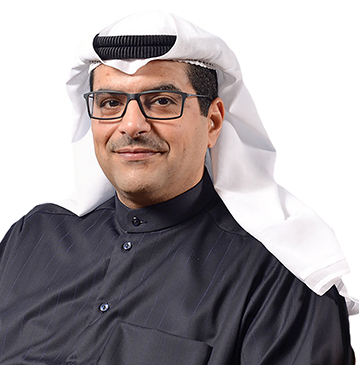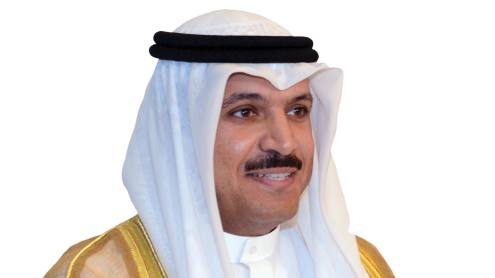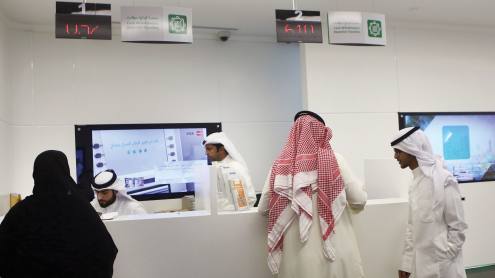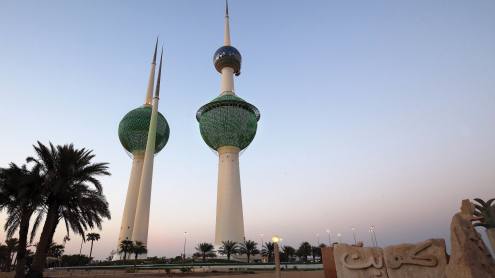Q: Kuwait Finance House [KFH] shareholders approved the acquisition of Bahrain’s Ahli United Bank [AUB] in January. What was the origin of the deal?
A: Around the middle of 2015, KFH’s board looked at the group’s return on equity and assets, and asked for our projections for the coming three years. Following this, the board said we needed to find a way to boost our income and increase our international presence, while diversifying our risk profile away from Kuwait and Turkey.
Further reading
Egypt and London in particular were key – especially London, given its role as a private banking hub and a kitchen for investment products. We looked at 27 potential acquisition targets in the Gulf Co-operation Council and within the wider region, and AUB was the most earnings per share-accretive transaction in our eyes.
KFH will retain control with 64.7% [of the combined entity], while AUB’s shareholders would represent 35.3%. The combination of the two will be very progressive for KFH and AUB in terms of reducing their cost bases, and having the ability to invest more in technology as a bigger group.
We will create, hopefully, new jobs within the new group across its geographic distribution, and particularly new roles related to fields including data science, artificial intelligence [AI] and big data. The profile of our employees is going to change, and will require new skills.
Q: AUB’s Kuwaiti operations account for the largest proportion of its loan book and earnings. How big an impact was its Kuwait-based business in your considerations?
A: I don’t think it is AUB Kuwait that we were targeting specifically, but because it owns AUB Kuwait it is going to be part of the parcel. The Central Bank of Kuwait was worried about the Herfindahl-Hirschman Index implications of the deal, particularly in terms of Islamic banking. For that reason, the central bank mandated that AUB will have a digital licence and will continue to compete with us.
Q: What will happen to AUB’s branch network in Kuwait?
A: The two banks have overlapping branches, so the ones we don’t need we would definitely sell to other banks. We anticipate that about half of AUB’s branch network is redundant due to KFH already having a corresponding branch in the same location. Those branches would be sold off and we would retain the other half, which is about 19 branches. This will grow our branch network from 62 to 81.
Q: Will the AUB brand continue to operate in Kuwait?
A: Yes, but as a digital-only bank. [According to our discussions with the central bank], AUB will need to remain as a challenger bank that competes with all banks, including KFH even though we own it. To compete with other banks it would have its own separate management team that is different to ours. We would set the guiding principles, such as the overall risk profile, and determine the level of investment required.
[AUB]’s offering itself has to be different from what we and others are currently offering. If you look at any of the local banks, they have mobile banking applications that have extremely rich features but are generally not user-friendly.
The new digital banking proposition would significantly rely on mining customer data, and ensuring that we have proper data scientists that will provide the appropriate algorithms to understand customers’ wants and needs, and how can we satisfy those at the right time and in the right place. We’re looking at geofencing, for example, with certain merchants; if you pass by, it automatically gets a notification on your mobile app, saying that we have an offer here, for example, rather than pushing offers that are non-relevant to the individual. That is one example, as well as e-know your customer [KYC] and digital onboarding [of the services we see them offering].
We are currently in discussions [with the central bank] about regulations for digital banking because part of the approval that we received for acquiring AUB is to convert AUB’s licence to a digital banking licence. In order for me to build a digital bank, I need to know what the regulations are; up to now we don’t have any. So we are working with the regulator in formulating what the rules should be for the new digital bank.
Q: How are you managing the merger of KFH’s Islamic assets with those of AUB, which are a mixture of conventional and Islamic?
A: What we’re doing now is converting AUB from a conventional to an Islamic bank. This is a bit tricky for a number of reasons. AUB has an Islamic window, Al Hilal, and a conventional counterpart. So part of its balance sheet is Islamic, namely deposits and financing, and it also has a conventional bank, which carries the normal transactions for its clients. We will be converting the conventional, and the Islamic is going to be migrated.
The approach is to shift any assets or liabilities booking as much as possible to KFH. We did an evaluation of the IT stacks of KFH and AUB and decided to go with the KFH stack. So we’ll have a migration plan to migrate data from its stack to ours, and then we would have one platform for the customer from day one, which hopefully will be early 2021.
Q: What are the threats to your business that keep you awake at night?
A: Asset quality does not rank particularly high; it is more the threat from cybersecurity [breaches] and the challenge from fintechs. All the time, we face the prospect of denial-of-service attacks that threaten to close down certain services.
We have a security team that works 24/7 to look out for potential attacks, and they respond as soon as they see one, by, for example, cutting off an international IP coming in. We’re looking at using machine learning that can take action quicker than a human security team. In some areas, AI is much faster, robust and can detect patterns much more easily than humans can.
When you look at big tech and big data providers, they are bigger than all the banks put together in terms of their computing power and the use of AI and so on. They’re in a position to know our customers much better than we could. The only thing is that they’re not regulated, which helps us as banks because they need to collaborate with us to reach their end goal. If they start providing banking services they need to be regulated [as banks], and so they’d have the same regulatory burdens that we carry.
Technology can help you streamline things but you still need to have a physical signature on a contract with corporate, small and medium-sized enterprises and individual customers.
But regulators are getting more educated about what fintechs are doing. They’re helping banks in advancing certain issues, particularly in risk management. With regtech, you would see significant improvements in anti-money laundering [AML] and KYC. Issues that are related to compliance would be significantly enhanced; as an example, you can use AI for AML detection.
We’ve already implemented a few of them – for example, robotics to improve our processes. What used to take 45 minutes in terms of process now takes two minutes. So these robots are helping us a lot in streamlining our current operations.
But we’ve still not yet tapped into blockchain or AI through the cloud, mainly due to regulations that stipulate you can’t have data residing outside the country.
This interview was conducted before the economic impacts of the coronavirus outbreak had become prominent.













